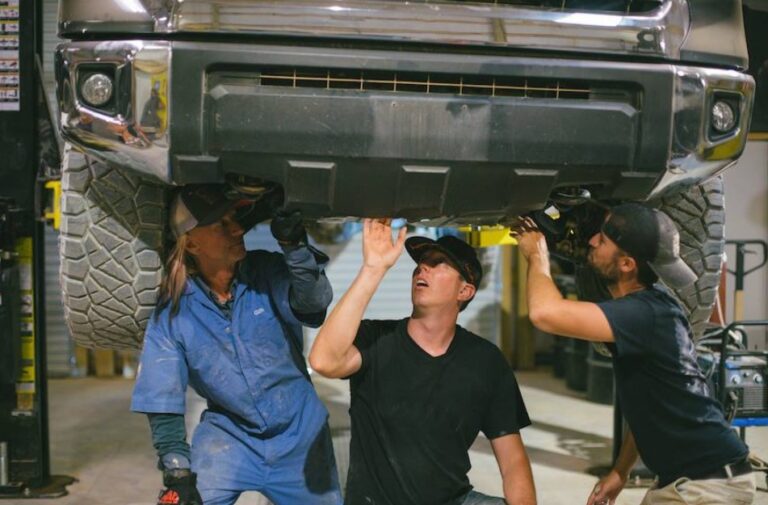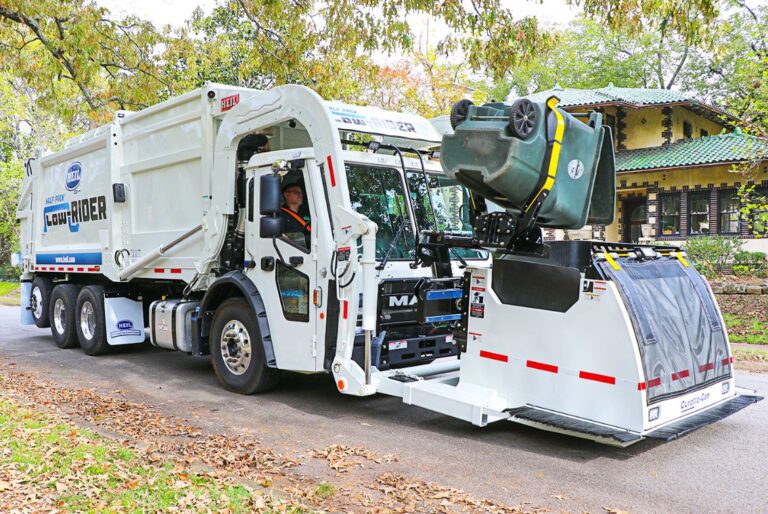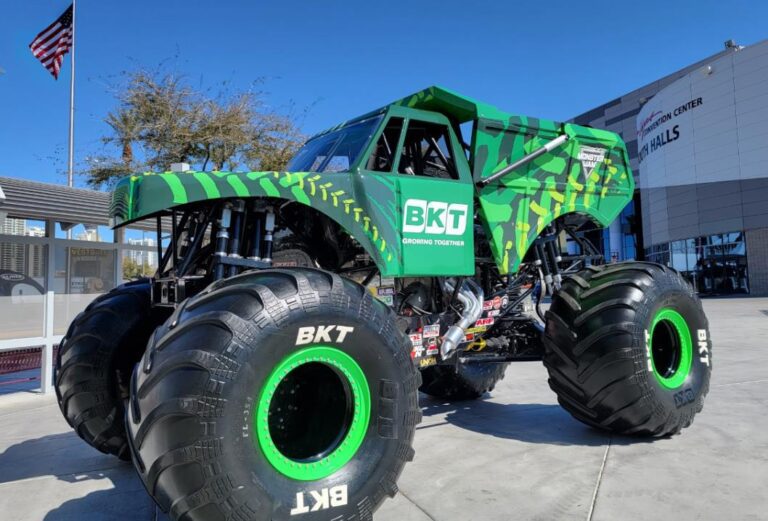Semi Truck Vs Full Truck | Which One Is Better?
This article will explain everything about Semi Truck Vs Full Truck. These terms often create confusion. Understanding the differences between the two is crucial for anyone involved in the trucking industry.
Key Takeaways
- Semi-trucks are more versatile but generally have less cargo space.
- Full-trucks are better for long-haul deliveries but are less flexible.
- The choice between the two depends on your specific needs.
- Both have their own sets of regulations and licensing requirements.
- Fuel efficiency varies between the two types.
Semi Truck Vs Full Truck
When it comes to Semi Truck Vs Full Truck, the primary difference lies in their structure and purpose. Semi-trucks are designed for versatility, while full-trucks are built for capacity.

What is a semi-truck?
A semi-truck, also known as a semi-tractor, tractor-trailer, or 18-wheeler, is a type of heavy-duty truck designed to pull one or more trailers. Unlike a full truck, where the cargo area is permanently attached to the cab, a semi-truck has a detachable trailer, allowing for greater flexibility in cargo transportation.

Key Components
- Tractor Unit: This is the front part of the truck where the driver sits. It houses the engine and all the controls.
- Fifth Wheel: This is a coupling device mounted at the back of the tractor unit. It allows the tractor to attach to various types of trailers.
- Trailer: This is the detachable part that carries the cargo. Trailers come in various forms, such as flatbeds, refrigerated units, and tankers.
Common Uses
- Long-haul Freight: Ideal for transporting goods over long distances.
- Specialized Cargo: Can carry hazardous materials, oversized loads, and more.
- Intermodal Transport: Commonly used in combination with rail or sea transport.
What is a Full Truck?
A full truck, also commonly referred to as a “straight truck” or “rigid truck,” is a type of heavy-duty vehicle where the cargo area is permanently attached to the cab. Unlike semi-trucks, which have detachable trailers, full trucks are a single, unified structure.

Key Components
- Cab: This is where the driver sits and controls the vehicle. It is directly attached to the cargo area.
- Cargo Area: This is the section of the truck designed to carry goods. It is permanently affixed to the cab.
- Chassis: This is the framework that supports both the cab and the cargo area.
Common Uses
- Local Deliveries: Often used for short-haul deliveries within a city or region.
- Specialized Cargo: Suitable for transporting large, bulky items like furniture or machinery.
- Construction Sites: Frequently used in construction for hauling materials like sand, gravel, and cement.
What’s The Difference Between Semi Trailers And Full Trailers?
Comparing the Two
| Feature | Semi Truck | Full Truck |
|---|---|---|
| Versatility | High | Low |
| Capacity | Medium | High |
| Fuel Efficiency | Varies | Generally lower |
Regulations and Licensing
Both types of trucks have their own sets of regulations and licensing requirements.
Semi Truck Regulations
- Weight Limits: Generally lower than full trucks.
- License Requirements: Special endorsements are needed.
Full Truck Regulations
- Weight Limits: Higher weight limits.
- License Requirements: Usually a standard commercial license.
Fuel Efficiency
Fuel efficiency is another crucial factor to consider.
Semi Truck Fuel Efficiency
Semi-trucks often have better fuel efficiency due to their lighter weight.
Full Truck Fuel Efficiency
Full trucks, being heavier, usually consume more fuel.
Maintenance and Repairs
Maintenance and repairs are significant factors to consider.
Semi Truck Maintenance
Semi-trucks often require specialized maintenance due to their complex systems.
Common Issues
- Brake Wear: Frequent stops can wear out the brakes.
- Engine Overheating: Long hauls can cause the engine to overheat.
Full Truck Maintenance
Full trucks generally have simpler systems, making them easier to maintain.
Common Issues
- Tire Wear: The heavy load can cause the tires to wear out quickly.
- Transmission Issues: Due to the heavy load, transmission problems are common.
Cost of Ownership
The cost of owning a semi-truck or a full truck varies significantly.
Semi Truck Costs
- Initial Cost: Higher due to specialized equipment.
- Maintenance Cost: Also higher due to complexity.
Full Truck Costs
- Initial Cost: Generally lower.
- Maintenance Cost: Lower due to simpler systems.
Why Is A Semi-Truck Not A Full Truck?
The primary reason a semi-truck is not considered a full truck lies in its structure and functionality. A semi-truck consists of a tractor unit that can be detached from its trailer(s), offering greater flexibility in cargo transportation.

On the other hand, a full truck has a cargo area that is permanently attached to its cab, making it a single, unified structure.
Key Differences
- Versatility: Semi-trucks can switch between different types of trailers, making them more versatile for various cargo types.
- Cargo Capacity: Full trucks are generally designed for larger cargo capacities in terms of both weight and volume.
- Fuel Efficiency: Semi-trucks are often more fuel-efficient due to their lighter weight and the option to use aerodynamic trailers.
What Makes A Truck A Semi?
A truck is classified as a “semi” based on its ability to detach its trailer from the tractor unit. This design allows for greater flexibility and versatility in cargo transportation.

Key Features
- Tractor Unit: The front part of the truck where the driver sits, housing the engine and controls.
- Fifth Wheel: A coupling device that allows the tractor to attach to various types of trailers.
- Detachable Trailer: The part that carries the cargo and can be detached from the tractor unit.
Which Type Of Trailer Is Right For Me?
Choosing the right type of trailer depends on various factors such as the type of cargo you need to transport, the distance of the haul, and specific requirements like temperature control.
Common Types of Trailers
- Flatbed Trailers: Ideal for heavy machinery and oversized loads.
- Refrigerated Trailers: Used for perishable items that require temperature control.
- Tanker Trailers: Suitable for transporting liquids or gases.
Factors to Consider
- Cargo Type: Different trailers are designed for specific types of cargo.
- Distance: Some trailers are better suited for long-haul transportation.
- Special Requirements: Some cargo may require specialized trailers, such as those with temperature control or additional security features.
Conclusion
In the end, the choice between a Semi Truck Vs Full Truck depends on your specific needs. Both have their pros and cons and understanding these can help you make an informed decision.
People Also Ask
What is the average lifespan of a Semi Truck and a Full Truck?
The average lifespan of a semi-truck is around 10-15 years, while a full truck can last up to 20 years.
What types of cargo are best suited for each?
Semi-trucks are versatile and can handle various types of cargo, while full trucks are best for bulky and heavy items.
Are there any restrictions on where these trucks can go?
Semi-trucks may face restrictions in city centers due to their size, while full trucks are generally more accepted.

Welcome to the exhilarating world of Matt Rex, a professional car racer turned renowned vehicle enthusiast. Immerse yourself in his captivating blog as he shares heart-pounding adventures, expert reviews, and valuable insights on cars, trucks, jets, and more. Fuel your passion for speed and discover the beauty of vehicles through Matt’s engaging stories and meticulous expertise. Join the ever-growing community of enthusiasts who find inspiration and expert advice in Matt Rex’s blog—a digital hub where the thrill of speed meets the pursuit of knowledge.






![2005 Chevy Colorado Transmission Problems [3 Working Solutions]](https://www.turbochaos.com/wp-content/uploads/2023/06/2005-Chevy-Colorado-Transmission-Problems-768x512.jpg)
